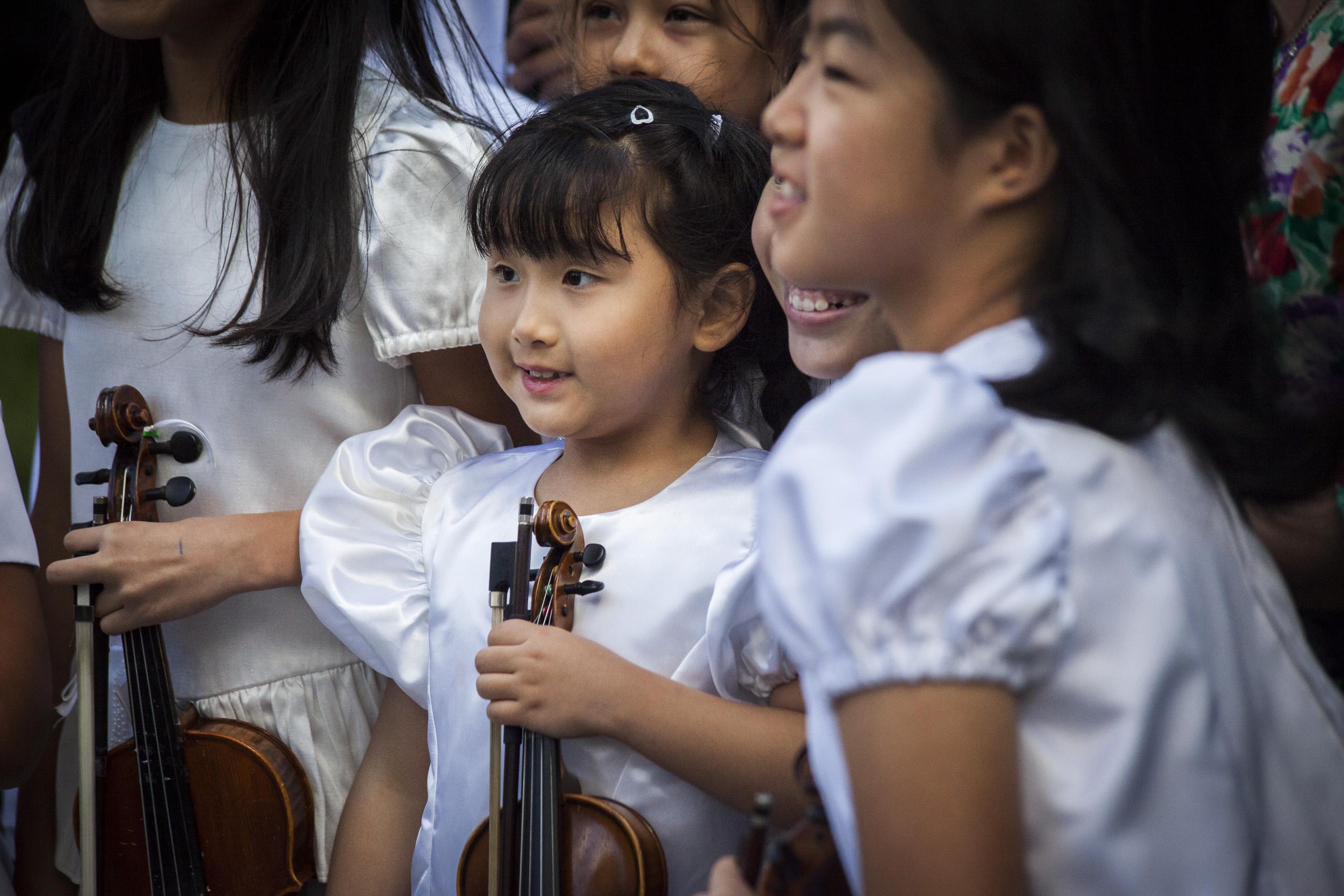An Analysis of Chapter Twelve of the Global Study: Human Rights Mechanisms
By Yvette Dzakpasu
Young musical performers during the annual Peace Bell Ceremony held at UN headquarters in observance of the International Day of Peace. (Photo: UN Photo/Laura Jarriel)
Chapter twelve of the Global Study on the implementation of UNSCR 1325 (2000) examines the linkages between existing human rights mechanisms and the Women, Peace and Security (WPS) framework. It notes that WPS resolutions highlight how women’s human rights and gender equality are central to the maintenance of international peace and security, and shows how an integrated approach by the international community can strengthen preventive actions and develop durable solutions to conflict situations to prevent re-emergence of conflict and sustain peace.
This chapter outlines how existing range of human rights mechanisms, including the human rights treaty bodies, the Human Rights Council (HRC) and its Universal Periodic Review and special procedures, regional human rights courts, and national human rights mechanisms, play an integral role in monitoring violations of women’s rights in conflict and post-conflict settings and can inform decisions made by all parts of the UN system. Similarly, it affirms that the WPS Agenda is not only relevant for the Security Council, but it is the responsibility of a broad range of actors, including in particular Member States.
Facts and Figures
The CEDAW Committee’s General Recommendation 30 clarifies state and non-state obligations to implement the Convention before, during and after conflict and political crises, reaffirming CEDAW’s role as one of the most important accountability tools for the WPS Agenda (Global Study 2015, 350);
Recent Universal Periodic Reviews (UPRs) of conflict and post-conflict countries by the HRC have addressed issues relating to the implementation of the WPS Agenda. In 2014, for example, Ireland recommended that the DRC work to ensure full implementation of UNSCR 1325 (2000) and 2122 (2013), including by increasing women’s participation in peacebuilding (Global Study 2015, 358);
Regional and sub-regional human rights mechanisms play a key role in advancing implementation of the WPS Agenda, and holding Member States accountable to commitments to gender equality in conflict affected contexts (Global Study 2015, 361);
National Human Rights Institutions (NHRIs) are uniquely placed alongside other national-level mechanisms to lead on settling timelines, benchmarks and indicators for success in implementing the WPS Agenda (Global Study 2015, 363).
Recommendations
Member States should report on the implementation of obligations relating to Women, Peace and Security in the UPR and establish national mechanisms of reporting and follow-up of recommendations emanating from the UPR and other human rights mechanisms (Global Study 2015, 364);
Civil Society should submit parallel reports to treaty bodies and the UPR highlighting State obligations relating to Women, Peace and Security (Global Study 2015, 364);
The CEDAW Committee should question countries under review on the implementation of their obligations under the Convention relating to Women, Peace and Security (Global Study 2015, 364);
Human Rights Council Special Procedures, commissions of inquiry and fact-finding missions should include conflict and gender analysis in their work in conflict-affected countries, including in their mandates (Global Study 2015, 364).
For more information, see UN Women’s Global Study Factsheets or the entire Global Study on Women, Peace and Security

